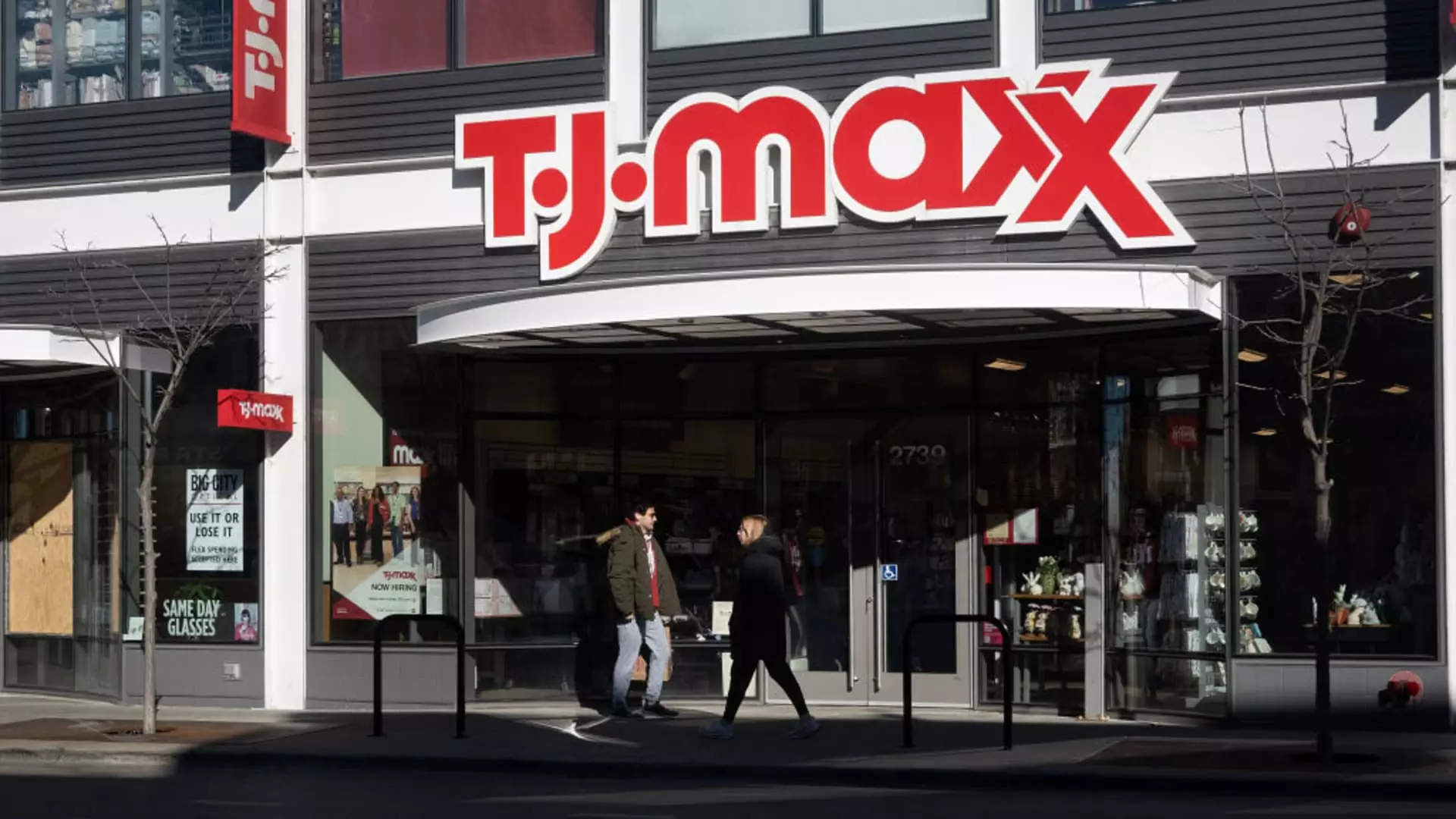The retail landscape is undergoing significant shifts, and companies like TJX Cos., the parent company of brands such as T.J. Maxx, Marshalls, and HomeGoods, are emblematic of these changes. Recently, TJX reported a “strong start” to the holiday shopping season, yet its stock took a nosedive after the company provided guidance that didn’t meet Wall Street expectations. This paradox of solid performance but disappointing outlook encapsulates the challenges faced by retailers in today’s dynamic market.
TJX delivered an impressive set of results for its fiscal third quarter, surpassing earnings expectations with revenue reaching $14.06 billion, exceeding the projected $13.95 billion. The reported net income was $1.30 billion or $1.14 per share, a notable increase from the same period last year. However, it is in the guidance for the holiday quarter that concerns emerged. The company projected earnings per share between $1.12 and $1.14, which fell short of the anticipated $1.18.
This disparity created tension in the market. Wall Street had forecasted optimistic earnings based on an overall strong performance, yet the lower-than-expected guidance raised flags among investors. This highlights the common yet vexing situation where companies can outperform during a reporting period but still unsettle the market with cautious future estimates.
TJX CEO Ernie Herrman emphasized the strong engagement from customers, with transactions contributing significantly to their comparable sales growth. The appeal of the “treasure hunt” shopping experience aligns with wider consumer trends where shoppers seek both value and experience. This concept of value-driven shopping continues to resonate particularly well with families and younger generations who do not carry the same stigma towards off-price retail as in previous decades.
Despite the overall strong performance, it’s crucial to examine the underlying sales dynamics. The company reported a mixed performance across its different divisions. While comparable sales at the Marmaxx division rose by 2%, this figure pales in comparison to the robust 7% growth experienced in the same quarter last year. Furthermore, HomeGoods observed comparable sales growth of 3%, down from 9% a year ago. This decline signals a potential saturation or the beginning of a slowdown in consumer spending habits that investors must closely monitor.
The mixed results can also be contextualized within the broader economic trends affecting retail. Economic fluctuations often dictate shopping behavior, particularly among price-sensitive consumers. Analysts from Bank of America raised concerns that unseasonably warm October weather might disproportionately influence off-price retailers like TJX. Typically, lower-income shoppers tend to buy out of necessity, and a lack of seasonal change could delay purchases of autumn wardrobe staples such as jackets and sweaters.
However, TJX’s sales seemed largely unaffected by these weather fluctuations, suggesting that the company may have successfully captured consumer interest despite rising economic pressures. The challenge for retailers will be maintaining this engagement as economic conditions evolve and potentially impact discretionary spending.
Looking ahead, TJX is not merely resting on its past successes. The company recently announced plans to enter the Spanish market with its TK Maxx brand by 2026—a strategic move that seeks to tap into new customer bases. Moreover, it is expanding its international portfolio through a significant stake in Brands for Less, a Dubai-based off-price retailer. This venture reflects a broader strategy to mitigate the risks presented by a saturated U.S. market and underscores the importance of diversifying revenue streams in international markets.
However, plunging into international waters comes with its own set of challenges ranging from operational execution to cultural adaptation. The company will need to navigate these complexities carefully to ensure successful market penetration.
While TJX Cos. has reported a robust fiscal performance, its future outlook is marred by cautious projections. Investors are left to balance the retailer’s current strengths against potential market fluctuations and evolving consumer behaviors. The emphasis on international expansion and adapting to changing market dynamics will be vital as the company aims to sustain growth. As TJX navigates this landscape, its ability to maintain customer engagement while responding to economic trends will determine its long-term success in the ever-competitive realm of retail.

